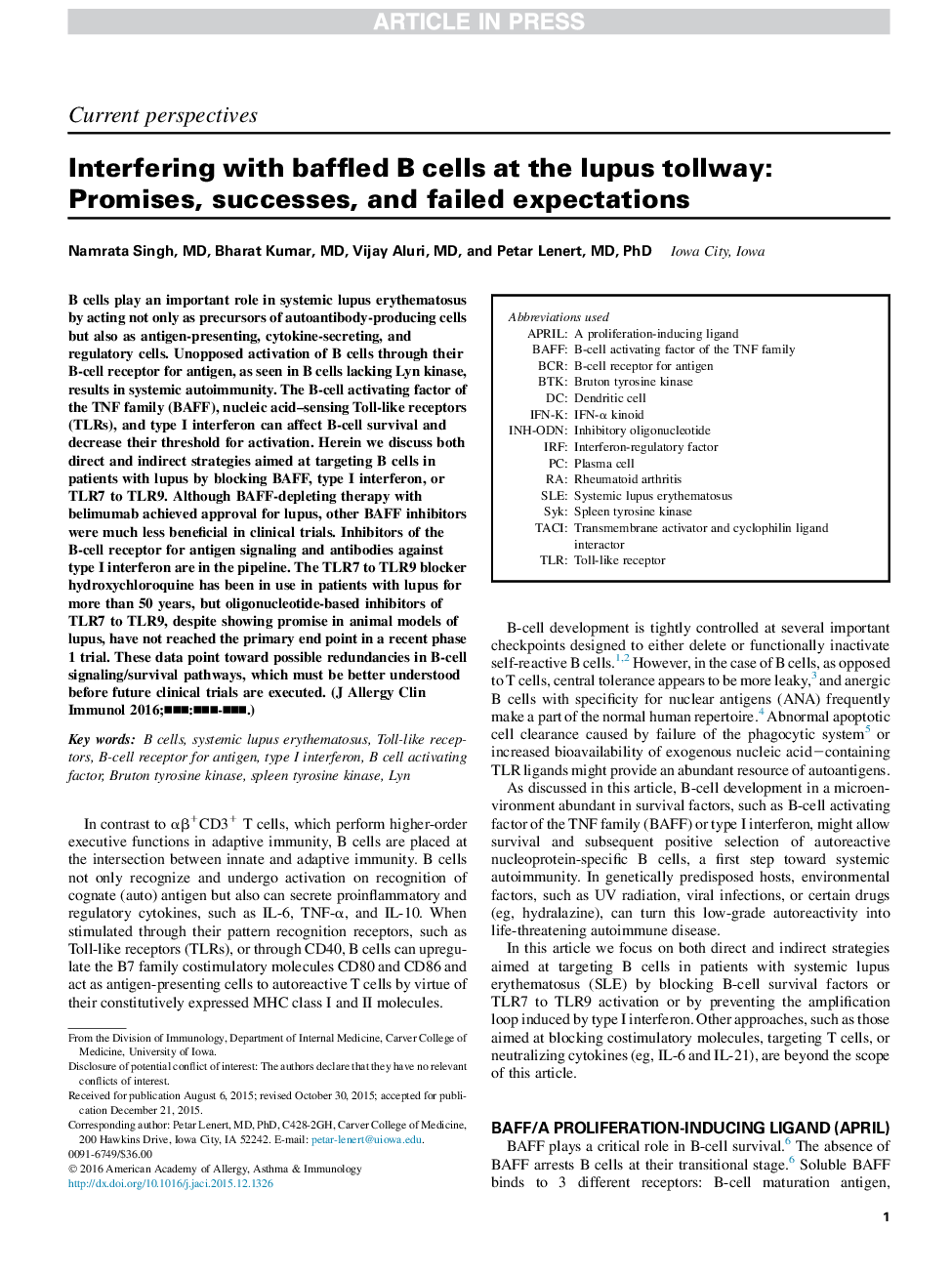| Article ID | Journal | Published Year | Pages | File Type |
|---|---|---|---|---|
| 6062922 | Journal of Allergy and Clinical Immunology | 2016 | 9 Pages |
Abstract
B cells play an important role in systemic lupus erythematosus by acting not only as precursors of autoantibody-producing cells but also as antigen-presenting, cytokine-secreting, and regulatory cells. Unopposed activation of B cells through their B-cell receptor for antigen, as seen in B cells lacking Lyn kinase, results in systemic autoimmunity. The B-cell activating factor of the TNF family (BAFF), nucleic acid-sensing Toll-like receptors (TLRs), and type I interferon can affect B-cell survival and decrease their threshold for activation. Herein we discuss both direct and indirect strategies aimed at targeting B cells in patients with lupus by blocking BAFF, type I interferon, or TLR7 to TLR9. Although BAFF-depleting therapy with belimumab achieved approval for lupus, other BAFF inhibitors were much less beneficial in clinical trials. Inhibitors of the B-cell receptor for antigen signaling and antibodies against type I interferon are in the pipeline. The TLR7 to TLR9 blocker hydroxychloroquine has been in use in patients with lupus for more than 50 years, but oligonucleotide-based inhibitors of TLR7 to TLR9, despite showing promise in animal models of lupus, have not reached the primary end point in a recent phase 1 trial. These data point toward possible redundancies in B-cell signaling/survival pathways, which must be better understood before future clinical trials are executed.
Related Topics
Life Sciences
Immunology and Microbiology
Immunology
Authors
Namrata MD, Bharat MD, Vijay MD, Petar MD, PhD,
